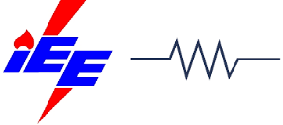Respect Murphy’s Law and don’t remote control all systems via SCADA
Remote control — What Not to SCADA
Every technology has applications for which it seems admirably suited, other applications for which it seems only marginally suited, and a group of applications for which it simply should not be used. When a technology is very young, it is often not clear which of those applications should be avoided.
As the technology matures, the hard school of experience clearly identifies some of them. In this technical article, we will discuss whether some types of control and data acquisition application should not depend on SCADA for their operation.
Murphy’s Law and Remote Control
Murphy lives! If you want to prove it, butter a slice of bread and drop it on the floor. If your intention is to prove that it will always fall butter-side-down, you will almost certainly note that this is so only about 50 percent of the time. On the other hand, if you drop it accidentally, it always falls butter-side down.
In a similar way, a remote control system or a data acquisition system can be counted on to perform flawlessly until that moment when a message absolutely must be sent, or a piece of data essential to the financial continuity of the company is working its way from one end of the system to the other. Then the system will fail.
You can test the system. You can perform all manner of evaluations on each and every individual part of the system. You can run performance checks on the system as a whole. You can consult the experts. How many times has Stuart (author) been told by maintenance technical specialists, “That system must be absolutely reliable. It hasn’t failed since I’ve been here!”
Believe it: If you depend on a remote control or data acquisition system to handle some critical function, it will fail. The more critical the function, the faster and more catastrophically it will fail.
Over the years, signals that could potentially be placed on a SCADA system have been evaluated to determine which ones could cause a problem. The specific signals needed by individual industries will vary, but the general types of signals are fairly consistent.
Two types should not be designed to depend on SCADA: The first are safety instrumented systems and the second are product measurement systems that will be used for billing or paying taxes and thus will require audit trails.
Safety Instrumented Systems
All processes should be equipped with a safety instrumented system if through failure of some part they may cause injury to a member of the public or a worker, or may cause damage to the equipment or the environment. Safety instrumented systems should be designed to override the normal control systems.
The normal control system, of course, is designed to monitor the operation parameters of the process and to make adjustments as necessary to keep the process within limits. This will ensure that the product meets a predefined specification and that process and related equipment do not leak, burn, explode, or otherwise come into potentially harmful contact with people or the environment.
But the normal control system does not always work properly.










No comments